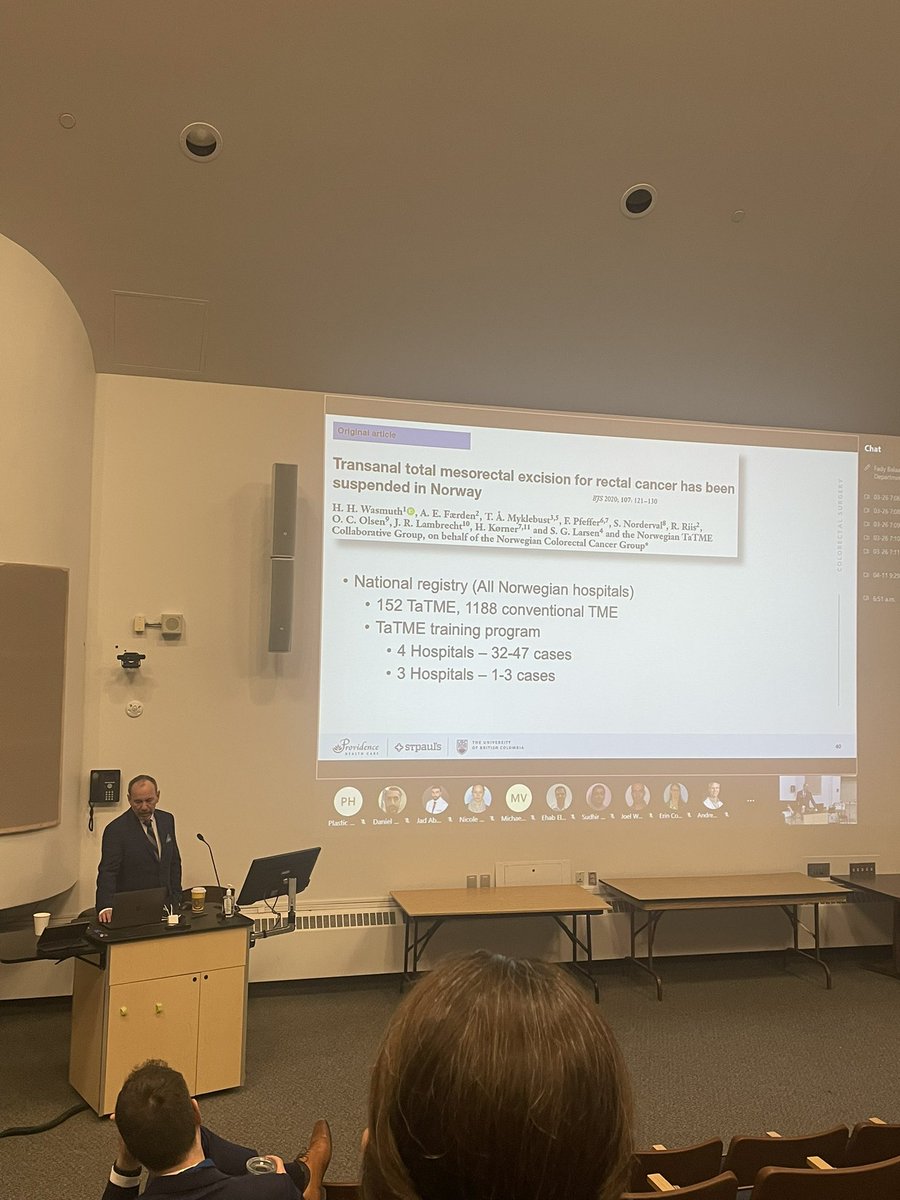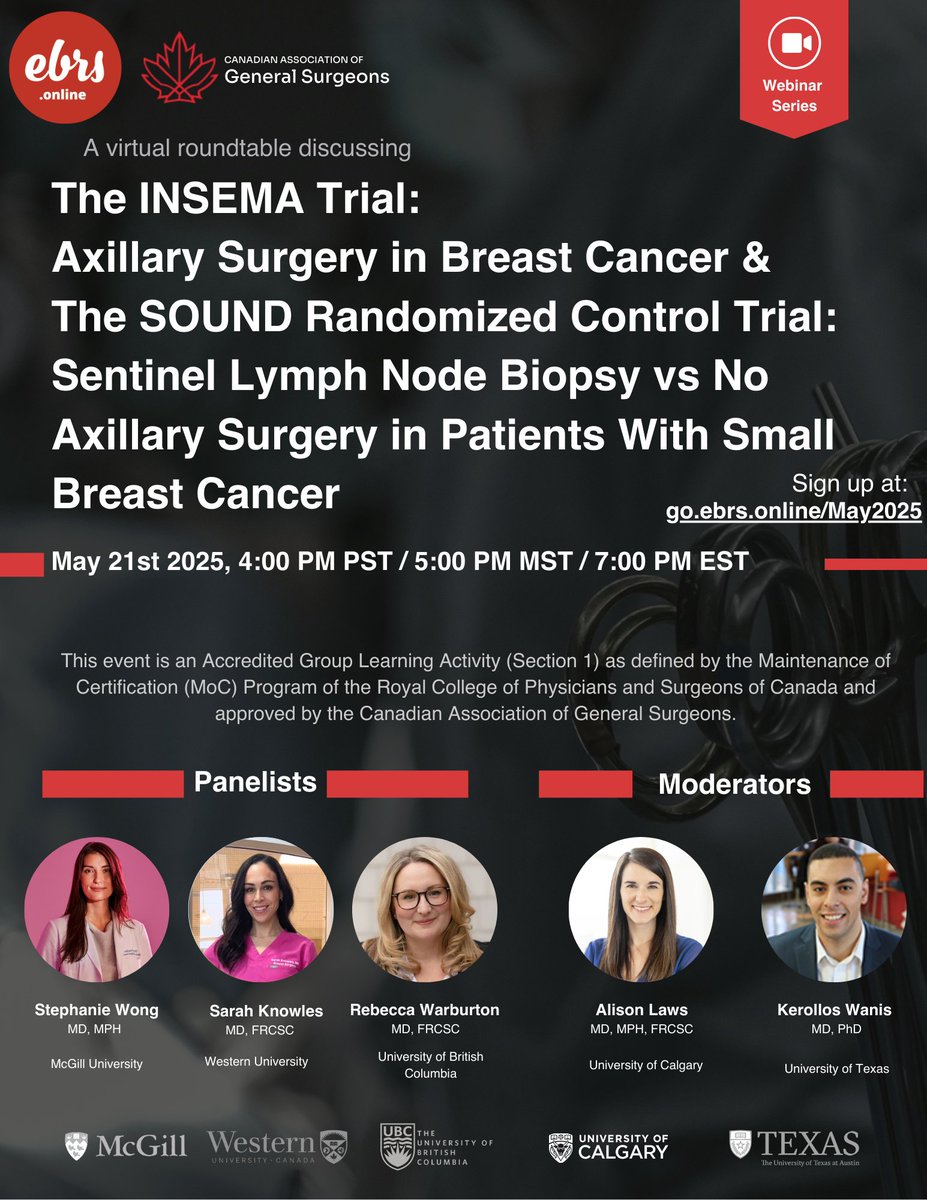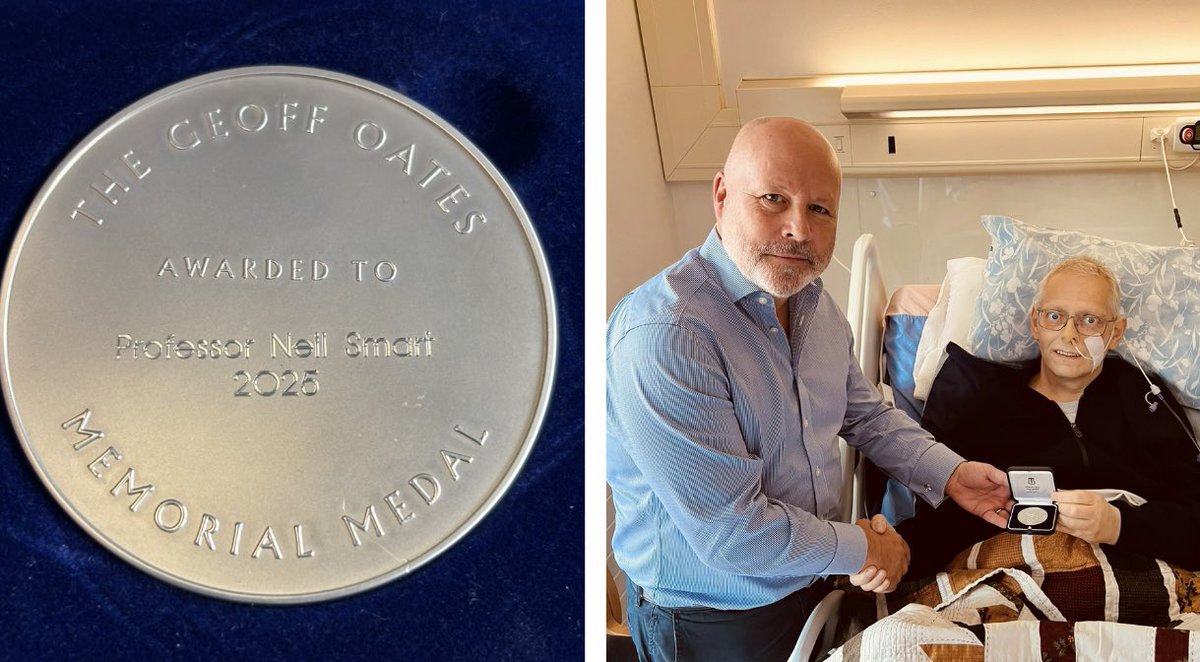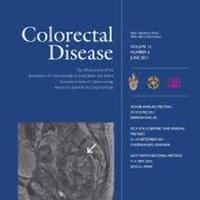
Dr. Carl J Brown 🌎
@drcarl_vancouvr
Provincial Lead, Surg Onc, @bccancer Chair & Clin Professor of CR Surgery, @ubcmedicine. Surgeon @providence_hlth
ID: 1321572482
http://colorectal.providencehealthcare.org/ 02-04-2013 02:17:25
2,2K Tweet
1,1K Followers
449 Following



Upon returning from the SAGES is in Tampa in 2026! meeting w many American friends and colleagues, a plea. Let’s return to respecting/standing shoulder to shoulder with allies. And watchful eyes on countries that don’t share our mutual values of freedom and liberty. #bettertogether





Wednesday morning motivation courtesy of Dr. Carl J Brown 🌎 and a gentle Dunning-Kruger curve reality check #General_Surgery_Research_Day



Join EBRS for an exciting webinar with panelists Dr. Stephanie Wong, Dr. Rebecca Warburton and Dr. Sarah Knowles on May 21st at 7:00 PM EST / 4:00 PM PST! Click the link below to register: go.ebrs.online/May2025 Fahima Dossa, MD PhD Dr. Carl J Brown 🌎 Elijah Dixon Kelly Vogt Ameer Farooq MD MPH FRCSC


Visiting MSKCC and a real pleasure to see Sir Murray Brennan present surgery rounds. His message: achieving cancer outcomes by minimizing the intervention rings true to me. It’s the motivation for the NEO trial. Julio Garcia Aguilar Martin Weisser



Privileged to present Prof Neil Smart with the Geoff Oates medal today on behalf of @ACPGBI - our highest honour for contributions to coloproctology. Neil is a husband, father, friend, surgeon, academic, Editor in Chief Colorectal Disease & mentor to many-posted at Neil’s request






Honoured to be named Head of Surgery University of British Columbia. I look forward to working with our incredible faculty, staff & learners to advance surgery. This wouldnt be possible without my UBC General Surgery family & Providence Health Care Colorectal Surgery team. They are my true inspiration.


Are we going to start using surgeon chromosomes as a quality metric now? A new JAMA Surgery paper claims female surgeons have better long-term outcomes. The difference? A 0.4% mortality gap across 2.2 million patients. Statistically significant? Sure. Clinically meaningful?








